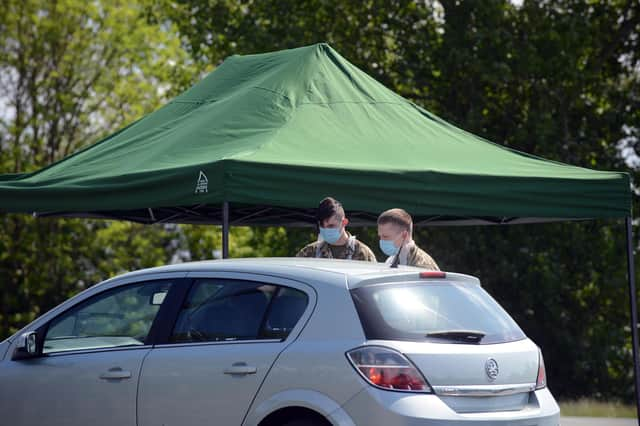When you should and shouldn't get a coronavirus test as North East health chiefs speak of 'frustration' over booking


It is hoped the new measures, which come into effect on Friday, September 17, and include restrictions on households mixing and hospitality venues closing by 10pm, will reduce the spread of coronavirus and ultimately protect the NHS by minimising the number of people who will need hospital treatment.
They apply in Northumberland, North Tyneside, Newcastle, Gateshead, South Tyneside, Sunderland and County Durham.
Advertisement
Hide AdAdvertisement
Hide AdNHS leaders are also calling on the public to use the NHS in the right way to help ease growing pressure on front-line teams and keep vital urgent and emergency care services free for those who really need them.
Adults and children should only get tested for coronavirus if they have any of the following three specific symptoms: a high temperature; a new, continuous cough – coughing a lot for more than an hour, or three or more coughing episodes in 24 hours; a loss or change to your sense of smell or taste.
If you or your child has had a coronavirus test, you MUST stay at home until you get your result. Anyone you live with, and anyone in your support bubble, MUST also stay at home until you get the result.
To access a coronavirus test, you MUST use the national NHS Test and Trace system by going online to www.nhs.uk or calling 119. Do not call NHS 111, your GP practice or attend hospital to try to access a test.
Advertisement
Hide AdAdvertisement
Hide AdProfessor Chris Gray, clinical lead for the North East and North Cumbria Integrated Care System, said: “We appreciate that people may have felt frustrated when trying to book a test for Covid-19, which is why we are seeing an increase in people trying to access tests through different parts of local NHS services.
“This is simply not appropriate and means our frontline teams are being distracted from delivering other important care to patients.
“As we head into autumn colds, sore throats and runny noses will all become more common, but they are not a reason to get a COVID-19 test.
“People need to look out for one or more of the key symptoms – high temperature, new persistent cough or loss of sense of taste or smell – and only then get tested, or if advised to by a health professional.”
People are also being reminded to continue to protect the NHS by following the rule of six and the principles of hands, face, space – washing hands regularly and thoroughly; observing social-distancing rules; wearing face masks or coverings in enclosed public spaces.
Advertisement
Hide AdAdvertisement
Hide AdProfessor Gray added: “NHS services remain open and are here for you despite the rise in Covid-19 and it’s vital that people continue attending their arranged appointments or seek medical help if they suspect they have an urgent need or significant concern regarding their health.
"This is particularly important for maternity services, people who may suspect cancer or already have existing long- term conditions.
“We must all continue protecting the NHS by keeping A&E free for serious emergencies. People must think pharmacy, GP or 111 first, and not just turn up to A&E.”